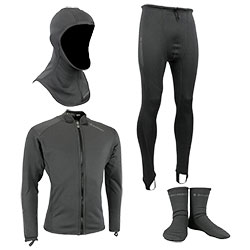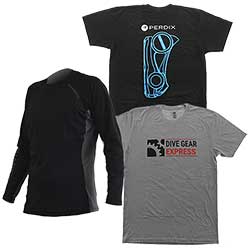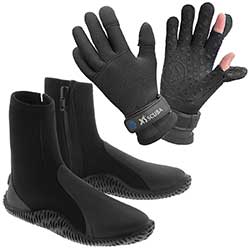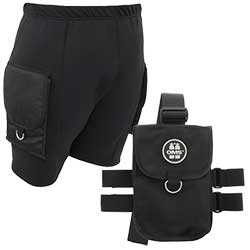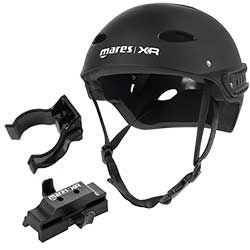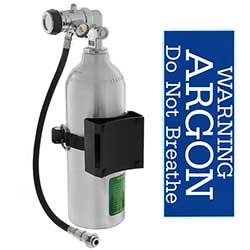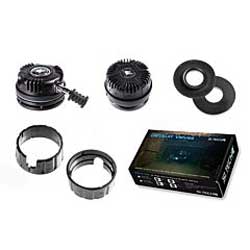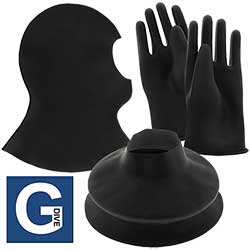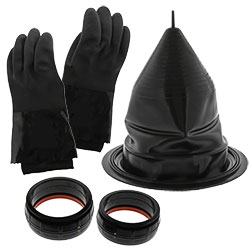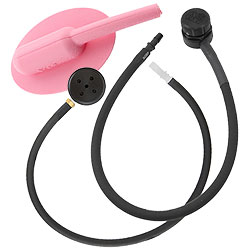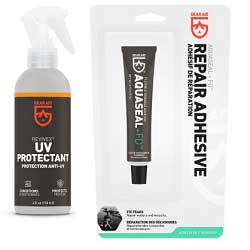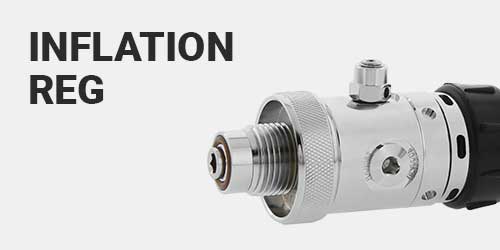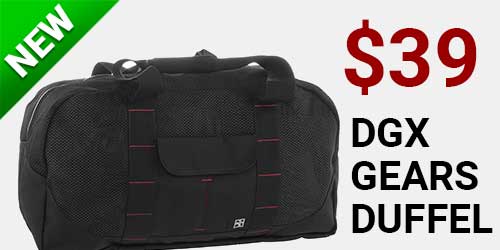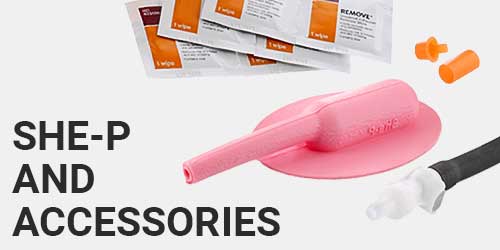Exposure
Apparel, Pockets, Helmets, Gloves, Drysuit Accessories
How Deep is DEEP and How Cold is COLD?
It can be useful to know how Dive Gear Express views some limits of recreational† diving for the purposes of equipment selection. We specialize in serving the experienced diver... along with those who want to become one. You may assume all our equipment is exceptionally well qualified for use by experienced divers in sport diving, generally defined as open-water no-stop-required diving to maximum depth limit of {130 feet-seawater | 40 meters-seawater} as specified by most North American training agencies or {160 fsw | 50 msw} as specified by some European training agencies.
We consider any recreational diving without an ability to immediately ascend directly to the surface, either because of a physical overhead barrier or a decompression-stop-required virtual ceiling, to be technical diving. Technical diving is sometimes described as extended range recreational diving and a common form is underwater "cave" diving. (Depending on the conditions, "wreck" and "cavern" diving could be considered a gateway between sport and technical diving). Various types of technical diving have become popular, and divers are doing those dives deeper and longer than ever before. Regardless of the name, technical diving incurs risks that require additional training and suitable equipment in specific configurations.
Because a great many of our customers are technical divers, most of the equipment we sell is suitable for technical diving to a {330 fsw | 100 msw} depth limit. Some equipment we offer is rated by manufacturers only to sport depths but might be widely used for technical diving because nothing officially rated deeper is available. When equipment has a specific depth limit supplied by the manufacturer, or we are aware of a limit based on dive community practices, we make a point of stating the limit in our descriptions.
We believe {330 fsw | 100 msw} to be approaching the existing limitations of recreational diving knowledge and technology. Diving beyond recreational limits is expedition diving and none of the equipment we sell should be considered suitable for such exposures without individual evaluation. Any manufacturer specifications exceeding recreational depths should be viewed with suspicion as they are usually just the result of a pressure-pot test and not real world diving experience. For example we offer dive computers that will continue to function well beyond recreational depths, but many experts believe recreational diving decompression algorithms are not valid for expedition diving exposures. In another example, many of our twist-on handheld lights are flood resistant far deeper than {330 fsw | 100 msw}, but below these depths the increasing pressure at some point will make them impossible to twist.
Water temperature is also a concern for proper function of mechanical and electronic devices as well as practical considerations such as usability with impaired mobility imposed by exposure protection. Based on testing standards, we consider warm water to be anything greater than {68° F | 20° C} with the temperate water range between {68° to 50° F | 20° to 10° C}. You may assume all our diving equipment is suitable for use in warm water and/or temperate water conditions.
We consider cold water diving as less than {50° F | 10° C} to a minimum of {40° F | 4° C}. Almost all of our equipment is suitable for cold water diving, and we will so indicate when appropriate. Freshwater freezes at about {32° F | 0° C} and seawater freezes at about {27° F | -3° C}. "Ice" diving in water temperatures approaching freezing incurs significant additional risk that requires specialized training and specialized equipment. Very little of our equipment is described as suitable for use in freezing water conditions because Dive Gear Express is located in South Florida, where solid water has fallen from the sky only once in recorded history.
Limits of diving are often a matter of individual perspective, so perhaps the best way to define "deep" and "cold" are depth and temperature beyond which the properly equipped and trained diver does not feel completely comfortable.
† The term "recreational diving" is often assumed to imply entry level dive training limits especially since exceeding those limits is typically taught as reckless and unsafe. However, recreational diving is an umbrella term encompassing a variety of elective SCUBA diving activities as distinct from commercial, scientific or military diving. Over time the acceptable risks for some types of recreational diving have progressed well beyond entry level training limits.
